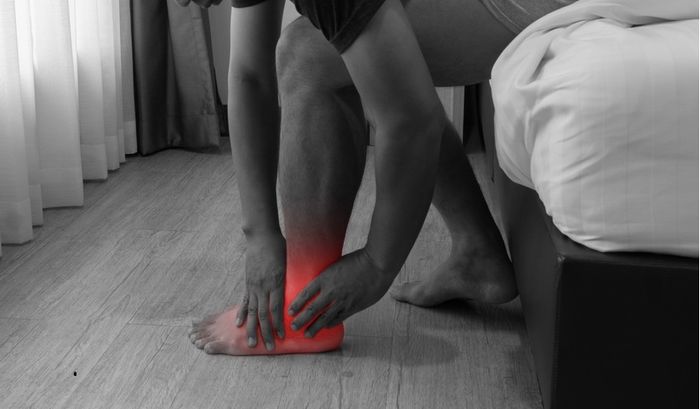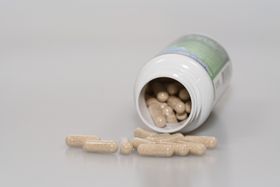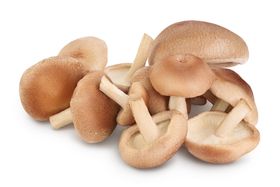Aching Leg Bones at Night? Here’s What Your Body Is Telling You
Updated September 20, 2023.

Lower leg aches could be due to several reasons apart from a bone-related issue. If you only occasionally experience the aching (such as at night), you may not need to worry. However, if pain persists or is accompanied by additional symptoms like swelling, numbness, difficulty walking, or fever, it may be necessary to consult a medical practitioner.
Causes of Pain in Your Leg Bones
- Trauma Trauma can lead to a fracture of the lower leg bones, leading to severe pain and discomfort.
- Osteoporosis With osteoporosis, bone density reduces gradually, leading to weaker bones that can cause pain and increase the risk of fractures.
- Arthritis Arthritis results in degenerative joint changes and causes pain, inflammation, and redness.
- Disease Diseases like cancer, Paget’s disease, and osteomyelitis can all cause pain in the leg bones. If your bone pain worsens over time, is a constant dull throbbing, or is accompanied by intense swelling and inflammation, you should consult a doctor immediately.
- Poor nutrition Inadequate intake of nutrients like calcium, vitamin D, and phosphorus may lead to bone disorders like osteoporosis, rickets, and osteomalacia, leading to bone pain.
Why Do Your Leg Bones Hurt More at Night?
- Activity during the day You may be distracted from your pain if you are typically very active. By the time you settle in for the night, the pain may show up with full force.
- Reduced blood flow Blood flow to the leg decreases when lying down, leading to more pain, especially with an underlying pathological condition like peripheral artery disease (PAD). With PAD, the pain isn’t just worse at night but whenever you lie down.
- Hormonal changes Changes in hormonal levels can affect pain perception, leading to increased pain at night.
- Tumour A tumour compresses the structures around it and may worsen when lying down.
- Infections During sleep, the body’s natural recovery process begins. Where there is an infection, this can result in higher inflammation levels that exacerbate pain in the evening.
How to Tell if Your Leg Bone Pain Is Serious
Since mild bone pain can be a sign of something more severe, it can be hard to know when your bone pain is a sign of something more dangerous. Consider consulting your doctor if you experience the following signs and symptoms:
- Persistence Bone pain that does not improve with rest or worsens over time may point to an underlying condition.
- Inflammation When bone pain is accompanied by inflammation, it may be a sign of an infection, a fracture, or even cancer.
- Severity Bone pain that affects your ability to perform your activities of daily living is not something to gloss over.
- History of trauma Bone pain following a traumatic incident, like a car accident or severe fall, may suggest a fracture.
- Age Conditions like osteoporosis are often age-related and need to be paid attention to when there is bone pain.
- Weight loss and fatigue Bone pain accompanied by weight loss and perpetual fatigue may be a sign of malignancy and should warrant immediate consultation with a medical doctor.
Home Remedies to Relieve Bone Pain in Your Legs
- RICE (rest, ice, compression, and elevation) can relieve pain and swelling
- Non-steroidal anti-inflammatory drugs like ibuprofen
- Low-impact exercises and stretching can strengthen the leg muscles and take some pressure off your bones
- Massage can improve blood flow to the painful area and accelerate healing
- Certain dietary changes incorporating the best foods for bone health, such as calcium, vitamin D, and magnesium, along with anti-inflammatory food like fatty fish, berries, and nuts should bring some pain relief
- Heat therapy can be used carefully (where there is no infection or suspicion of malignancy)
» Need a great massage oil? Try our Bliss Oil or Unwind Muscle Rub
Bone Pain Should Not Be Taken Lightly
While home treatments are helpful, persistently painful bones are not a positive sign and should not be taken lightly. If your pain doesn't subside soon, whether attempting home remedies or not, you should consult a doctor as soon as possible for a personalised treatment based on the severity of your condition.









